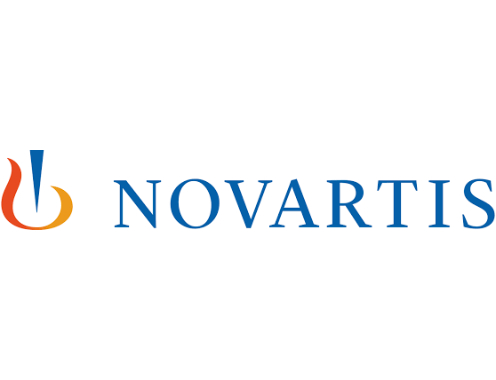Nazim Ünlü - Global People & Organisation Director (HR) at Novartis


Nazim Ünlü is the Global People & Organisation Director (HR) at Novartis, based in Basel. A Human Resources Leader with 15+ years of experience across multiple industries, Nazim is known for simplifying problems, driving consensus across regions & cultures and successfully delivering transformative change in complex, global organisations.
What is the most enjoyable aspect of your job?
I enjoy working in HR because it gives me the chance to positively impact people's lives. The human aspect of Human Resources is particularly important to me. I can assist people in advancing their careers, resolving workplace conflicts, and creating development programs that boost motivation and bring happiness. I also believe that HR professionals play a vital role in shaping organizational culture and employee experience. This role is strategic and fulfilling since employee experience significantly influences the workplace and overall culture. Working in HR is truly rewarding, and the field has improved significantly over the past 20 years.
We've discussed AI and digitalization in the past - and I know it’s one of your passions. How do you manage internal stakeholders to see the value of technology in HR and ever-evolving digitalization?
I had a chance to work as an HR Lead of the R&D Digital program called data42 at Novartis. I had an opportunity to learn a lot about digitalization and its implications and adaptation to a more extensive/complex organization setup. If the technological/digital ways of working are not widely embraced within the organization, it becomes even more challenging when you add an extra HR technology.
Regarding stakeholders, HR technologies are managed by the IT function - we can't do this alone. Convincing internal stakeholders of the value of HR technology for digitalization is not easy. It is quite a challenge, and to tackle this, we need a strategy to adapt, persuade, and gain support from stakeholders. Personalizing AI and HR technology to fit your company is the starting point because not every groundbreaking idea aligns with your current needs. The generation of value should bring mutual benefits. Looking back, the educational aspect is crucial. We need to show stakeholders how they can benefit from integrating HR technology. What efficiencies will be gained? How will it improve our employees' experience?
The second aspect is demonstrating return on investment - how can we show a positive ROI? Will productivity increase with the use of HR tech? Can it reduce recruitment costs and support the business P&L? Or what will you do with the extra time when the Technology/AI eliminates the administrative part of your job? What will you start doing, and what will be your trade-offs? You should honestly ask these questions and adjust your USP very clearly.
Thirdly, piloting the technology to showcase and demonstrate its effectiveness is essential. So, engage with your stakeholders early to collect inputs rather than rush to build a PERFECT Product!
In the meantime, scaling up quickly may cause organizational challenges or resistance as only some have the same urgency or understanding about what you are aiming for, bringing a digital product to change their way of working. We can build confidence and gather further support for the initiative by piloting with early adopters. Lastly (and I hesitate to use the overused term 'change management' in HR), communication is crucial. How can we create a simple ecosystem where people are not forced to use HR technology in a specific way? Without user buy-in, we won't be able to assess the impact of the technology.
I noticed on your LinkedIn profile you received a reward for being the most curious HR Business Partner in the region in 2012. Is it innate inquisitiveness that has driven you to continuously push HR initiatives forward?
I'll certainly remember that. Around 13-14 years ago, while working in Turkey, I received the recognition. Curiosity is a powerful motivator, especially from an HR perspective. As a Talent Acquisition professional, curiosity is crucial as it allows you to effectively learn about someone and evaluate them for a specific job. It also enables you to consistently search for innovative solutions, leading to different interactions with HR functions and products. Curiosity is closely tied to diversity and inclusion, as it entails being open to new ideas and seeking diverse solutions, which contributes to inclusivity. Lastly, I was fortunate to work with open-minded leaders. Our Country HR Head, Senay Kizilkaya, and Regional HR Head, Urs Karkoschka, created a humble ecosystem where learning and enjoyment went hand in hand. (With this chance, I'll share my regards with them.)
How do you go about creating a good working culture in your teams?
Culture is critical in the human resource department, fostering organizational harmony. It shapes our daily actions and influences why some people stay or leave. Building a positive culture starts with clearly defined values effectively communicated throughout the company. Leadership must not only share these values but also embody them, serving as a role model. Leaders' behaviors, akin to their shadows, influence and set an example for others to follow. Involving employees is crucial for instilling these values, enabling them to truly grasp and live by them. Recognition is essential, too; appreciating and acknowledging employees fosters a culture of giving, allowing them to embody the company's values.
Furthermore, grasping the positive aspects of culture through learning and development and providing diverse and tailored solutions is key. Particularly in today's world, learning and development programs should cater to employees' individual journeys, contributing to a unified culture in which people feel free to be themselves at work.
And if you had not taken the HR route Nazim, is there a different career path that you might have explored?
My professional journey did not commence in Human Resources. Initially, I embarked on my career in the strategy department of a corporate bank. I am fortunate to have established connections with esteemed HR leaders who introduced me to this field at my previous organization. Growing up in an academic environment —my parents being educators— had I not pursued a career in HR, I likely would have gravitated towards the education sector, focusing on roles related to people leadership, consultancy/strategy, and similar domains.
And looking back, what advice would you give to someone wanting to create a successful career within HR?
Keep your curiosity alive as a starting point. Stay updated with trends and continue learning because HR is more dynamic than ever, with technology and changes in the world's social construct (it may sound disruptive but also try to UNLEARN!).
Moreover, building relationships with diverse stakeholders is crucial as you need alliances to develop a strategy. Underline the importance of data literacy in HR, particularly in the context of analytics and AI. While some HR professionals may shy away from this area, it's a crucial skill to develop. If you aspire to be a CHRO, you need to be able to read and analyze data to inform your function's strategies.
The other element is advocacy. If you are content to share and enforce policies like a policeman or policewoman – sorry, nobody will listen. You're here to represent the human function, and you need to advocate for people. We have so many good tools in HR that you can build a diverse, equal, and equitable organizational culture and support this in your approach. It is so important for me personally to advocate for people! Remember that HR is about people, not just policies or frameworks.
Thank you Nazim for speaking to Drew Larcombe in our Human Resources recruitment team in Switzerland.
Views and opinions contained within our Executive Interviews are those of the interviewee and not views shared by EMEA Recruitment.






You can also use your social account to sign in. First you need to:
Accept Terms & Conditions And Privacy Policy